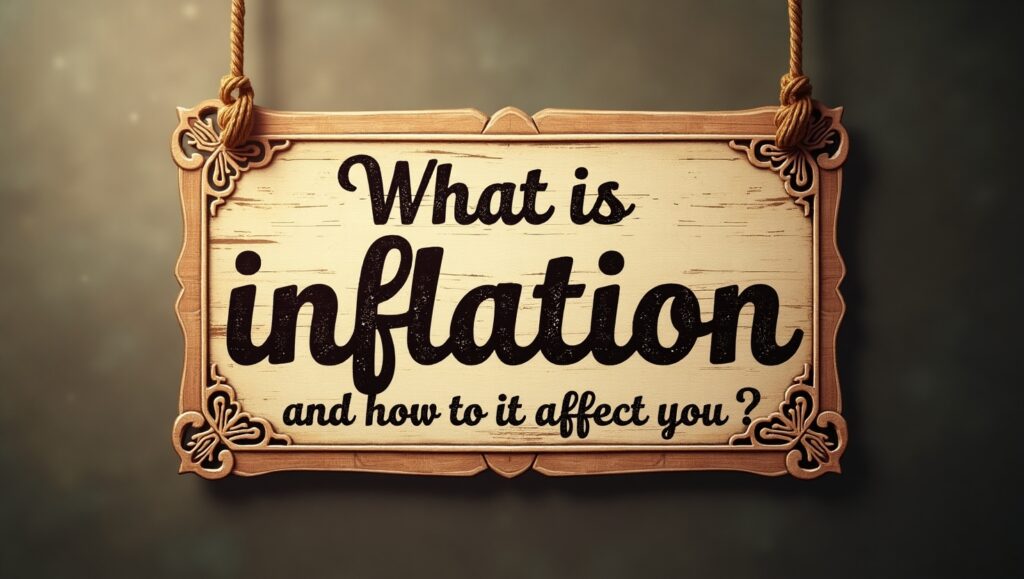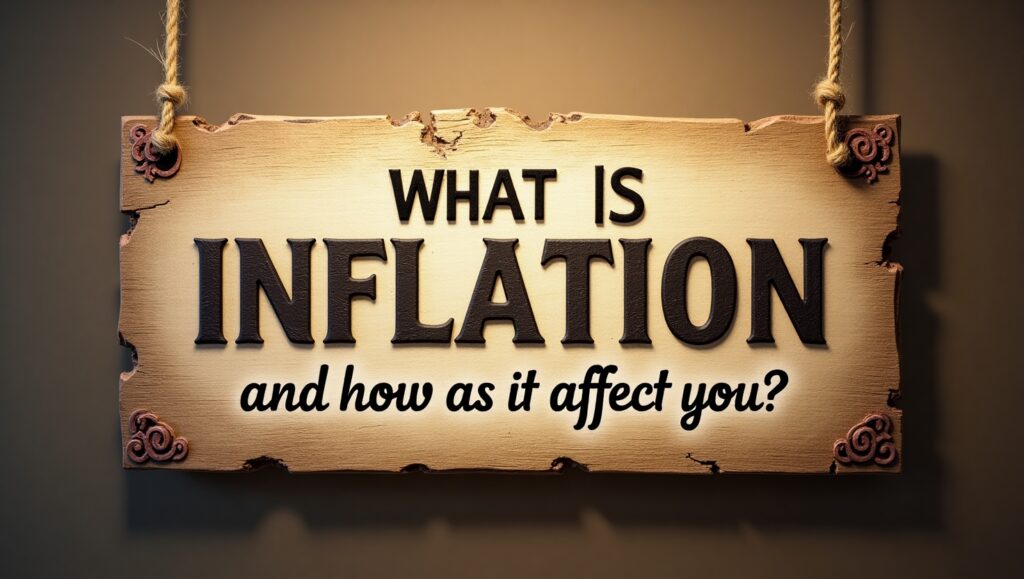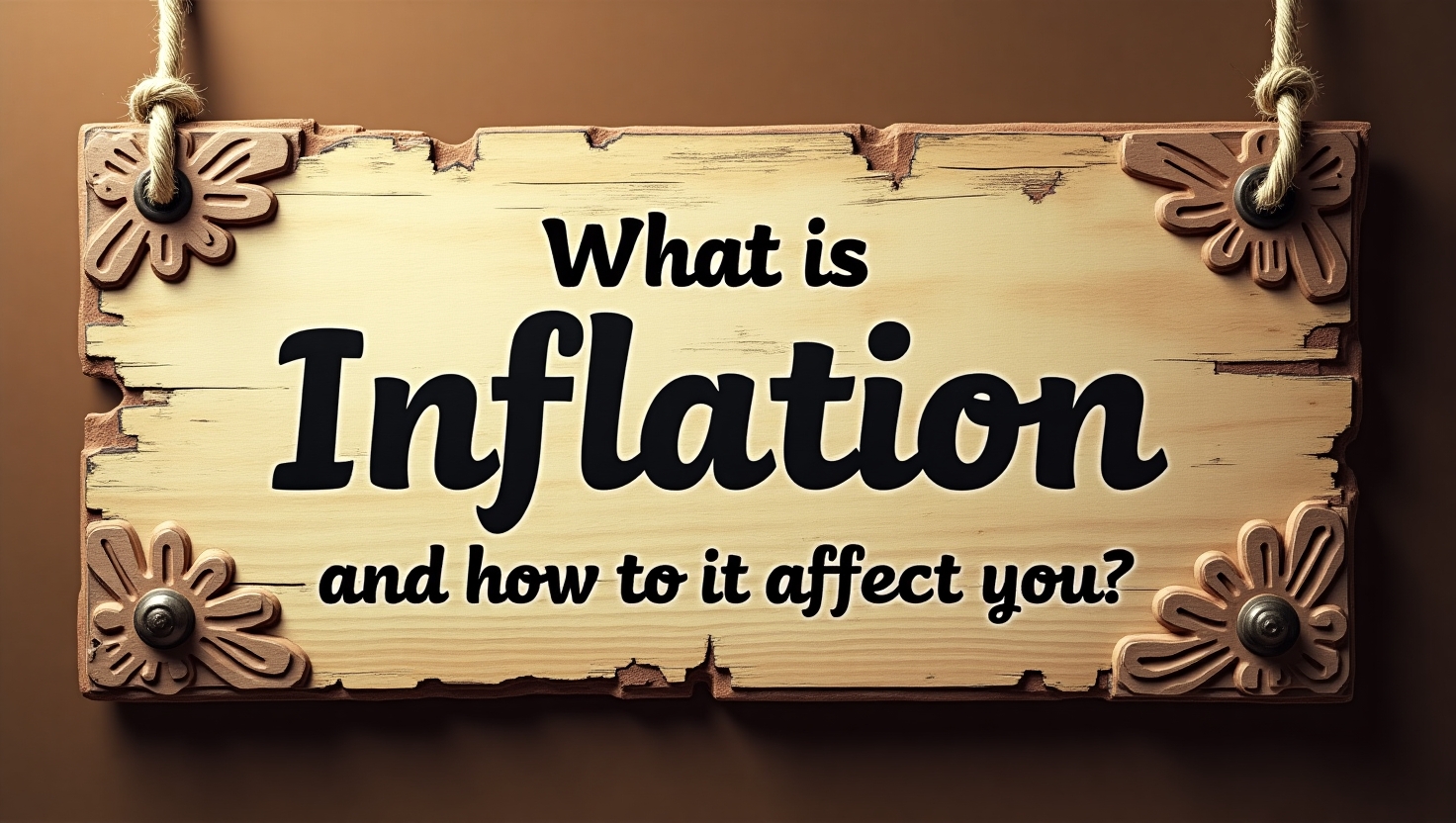We regularly hear the word “inflation” in news headlines, economic statistics, or everyday talks about how the cost of living is going up. But what is inflation, and how does it affect your daily life? If you want to make sensible financial decisions, you need to know what inflation is, whether you’re a student, a business owner, a salaried employee, or a retiree. We’ll talk about inflation in basic terms in this post and look at how it affects people, families, and the economy directly and indirectly.

What is the meaning of inflation?
Inflation is when the prices of goods and services go up over time. Your money doesn’t buy as much when inflation happens. In other words, you can buy less things with the same amount of money now than you could before. Inflation is when the price of something goes up over time. For example, if a loaf of bread used to cost Rs. 100 and now costs Rs. 120, that’s inflation.
The Consumer Price Index (CPI) and the Wholesale Price Index (WPI) are two common ways to assess inflation. These indexes keep track of how the average price of a lot of different goods and services, such food, housing, healthcare, transportation, and education, varies over time.
What Causes Inflation
There are a number of reasons why inflation happens, such as:
Demand-Pull Inflation: Prices tend to go up when there is more demand for products and services than there is supply.
Cost-Push Inflation: When the cost of making things goes up (for example, labour or fuel prices), firms generally pass those costs on to customers.
When a country prints too much money, it makes the currency less valuable, which causes inflation.
Imported Inflation: When a country depends on imports and prices around the world go up (like oil), it leads prices to go up at home.
How does inflation affect you?
- The cost of living goes up.
One of the most obvious effects of inflation is that the prices of basic goods go up. Inflation means that you have to pay more for the same products, such groceries, petrol, school fees and power. This can put a strain on the budgets of families, especially those with low or middling incomes. - Less money to spend
Your money loses value because of inflation. If your wage doesn’t go up with inflation, your real income goes down. This means that you can buy less with the same amount of money, which can affect how good your life is. - Savings lose their value
Inflation can make the money you save in a typical bank account with little interest lose value over time. If you have savings that return 5% interest a year but inflation is at 7%, you’re really losing 2% in real terms. This shows how important it is to make smart investments to beat inflation. - Effect on loans and debts
When it comes to loans, inflation can be good and bad. If you have a fixed-rate loan, like a mortgage, you profit because you pay it back with money that is worth less over time. If inflation causes interest rates to rise, on the other hand, new loans become more expensive. - Effects on business and investment
Inflation can make it more expensive for firms to buy raw materials, pay workers, and use utilities, which can lower their profit margins. Businesses may also boost their pricing, which means that customers will have to pay more. During times of inflation, some assets, like gold, real estate, and equities, may do better than others, like bonds and cash savings, which may lose value.

How to Keep Inflation from Hurting You
Make smart investments: To beat inflation, spread your money out among stocks, mutual funds, gold, and real estate. Improve your talents and income: Improving your skills can help you get better-paying jobs or promotions. Make a budget: Keep track of your expenditures and cut out things you don’t need to do to keep prices down. Emergency Fund: Always have some money set aside for emergencies or sudden price increases. Think about inflation-linked savings: some government bonds and programs are linked to inflation. In the end,
Inflation is a normal component of every economy, but when it goes up too quickly or abruptly, it may be very hard for people and families. You can’t stop inflation from happening, but you may do things ahead of time to lessen its effect on your money. Stay up to date, make smart investments, and change your financial plans as needed to make sure your hard-earned money stays valuable over time. What is inflation, what causes it, what are its impacts, how does it influence your money, inflation in Pakistan, the effects of inflation, inflation and savings



